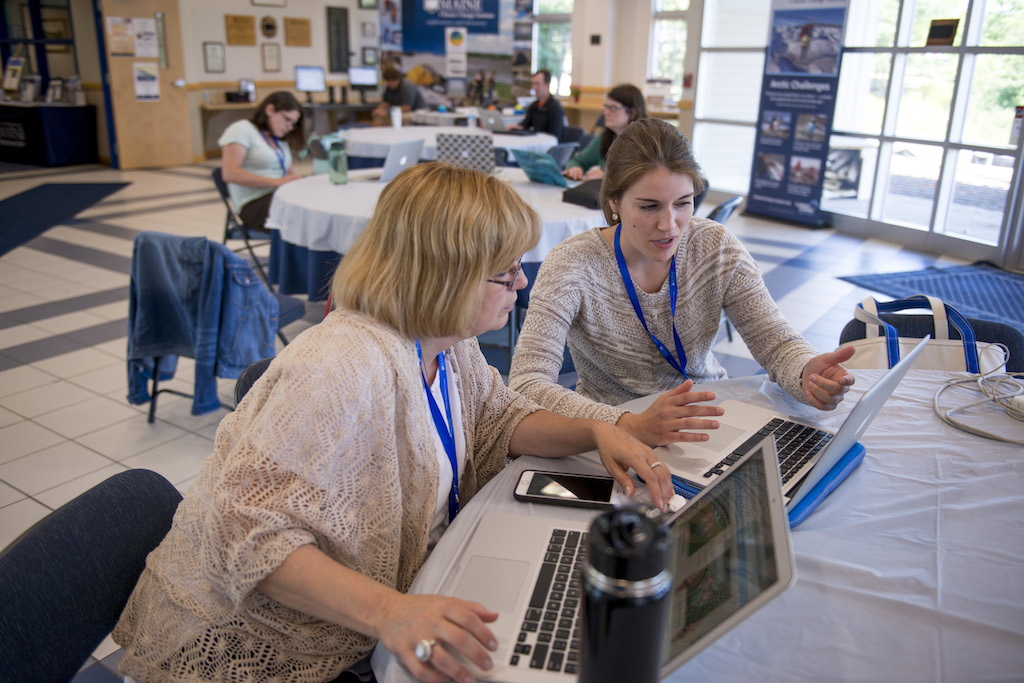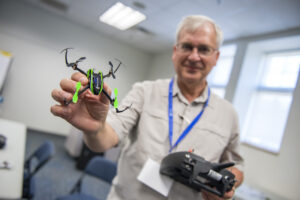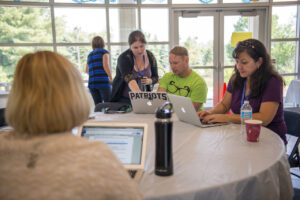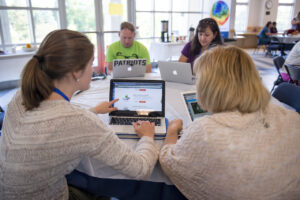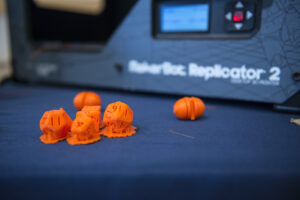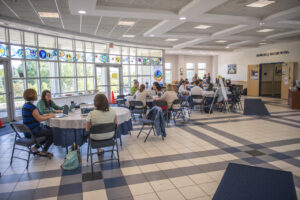Strands
Introduction and Building your Personal Learning Network with Johanna Prince
This strand is designed for educators from any background who are ready to rethink current practices and play with how digital tools can enhance teaching and learning. We will spend experimenting with tools that support personal productivity, enhance content areas, and allow students to demonstrate learning. We will begin with a review of frameworks for technology integration, and establish a shared vocabulary for our learning community. Throughout the week we will seek to expand our current digital toolkit, and explore established and emergent technologies for learning. We will also explore how we can leverage digital tools to form relationships and enhance our connections to local and global educators. This track is ideal for new and experienced teachers who are eager to enhance their use of digital tools.
Effective Implementation of Google Tools and Preparation for Level 1 Google Certification with Kern Kelley on loan from EdTechTeam
Explore the core areas of G Suite to increase efficiency in the classroom and student learning and creativity. We’ll explore several tools in Google’s Level 1 curriculum, all of which are taught within the context of meaningful use with students and teachers. Segments include the Chrome browser, search techniques, and Google Classroom as well as Google Drive, Docs, Slides, Spreadsheets, Forms, Calendar, Keep, Sites and Groups. Gmail, Hangouts, and YouTube are also included. In addition to the tools, participants are exposed to critical student skill sets necessary for learning in an online environment.
Putting STEM Into Action: Learning Through Making and Coding for All Ages with Jeff Bailey
Students are more engaged when they are creating real products and projects. Learn why so many schools are talking about makerspaces and learn what resources are out there to put STEM into action. Whether you are new to the Maker Movement or already running a maker space, you will gain resources to challenge and engage students. You will learn how to get started (no experience required) with coding with your students. The course will be structured in a way to differentiate the needs of the participants. Though the coding aspect of the course will start with block-based coding languages like Scratch, we will highlight other coding tools and languages for more advanced participants to explore.
Technology in the Primary Grades with Nadene Mathes
How do you integrate appropriate and meaningful technology for our youngest learners who are just learning to read and write? Let’s explore teaching reading and writing using social media, digital storytelling, flattening the globe with engaging projects, and supporting oral language development with technology. We’ll evaluate iPad apps, explore IWBs, discuss digital citizenship, flipping learning, makerspaces, and more, all at the level of emerging readers and writers, with an eye towards managing the technology. You are encouraged to bring digital photographs of your classroom.
Design Thinking: Bringing Empathy Fueled, Human-Centered Problem Solving to Education with Dan Ryder
This strand provides participants the opportunity to apply the principles of design thinking (people-centered, empathy-fueled problem solving) to impact area challenges. Participants will experience a mix of high, low, and no-tech approaches to making meaningful solutions through the design process. After experiencing a design thinking “flash lab” first hand, participants will uncover impact-area problems worth solving, identify the needs of their students/users, experiment with possible solutions, and produce working prototypes, worthy of implementation in your impact areas. Along the way, participants will explore how we might integrate a design thinking approach into any educational domain, whether in the classroom, the administrator, or the community. Participants are encouraged to bring phones, cameras, laptops, tablets, and a growth mindset.
Workshops
Monday
Session 1: 1:00-2:15
- Exploring and Evaluating the Twitterverse for Education with Donna Karno
- Introduction to Design Thinking with Dan Ryder
- Dip Your Toes in Coding with Jeff Bailey
Session 2: 2:30-3:45
- Digital Storytelling for our Youngest Learners with Nadene Mathes
- Getting Started with Google Classroom with Kern Kelley
- Using Design Thinking in Literacy and English Language Arts with Dan Ryder
Tuesday
Season 1: 1:00-2:15
- Engaging Students with Media with Becca Redman
- Digital Humanities with Peter Schilling
- Bring Learning to the Third Dimension with Jeff Bailey
Session 2: 2:30-3:45
- Video Editing for Student Engagement with Becca Redman
- Leveraging Twitter with Dan Ryder
- Genius Hour with Johanna Prince
Wednesday
Session 1: 1:00-2:15
- Digital Citizenship in Early Elementary Education with Meredith Swallow
- It’s Not About the Video: Move Forward with Flipping with Ashley Montgomery
- Formative Assessment with Technology with Theresa Overall
Session 2: 2:30-3:45
- Digital Citizenship in Middle-Level Education with Meredith Swallow
- Teaching like TED with Ashley Montgomery
- How to Find and Use Real-World Data in the Math, Science, Social Studies and Health Classrooms with Theresa Overall
Thursday
Session 1: 1:00-2:15
- Accessible Educational Materials with Walter Kimball
- Animation Creation with Google Presentation with Kern Kelley
- Robots in the Classroom with Jeff Bailey
Session 2: 2:30-3:45
- Assistive Technology Solutions for Access to the General Curriculum with Hillary Goldthwait-Fowles
- Pop-up Session
- Pop-up Session

